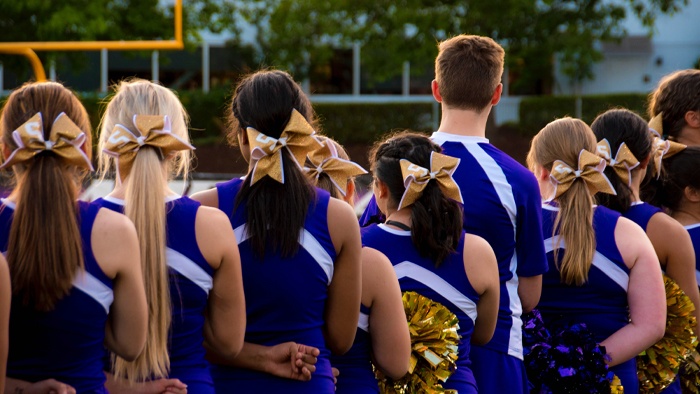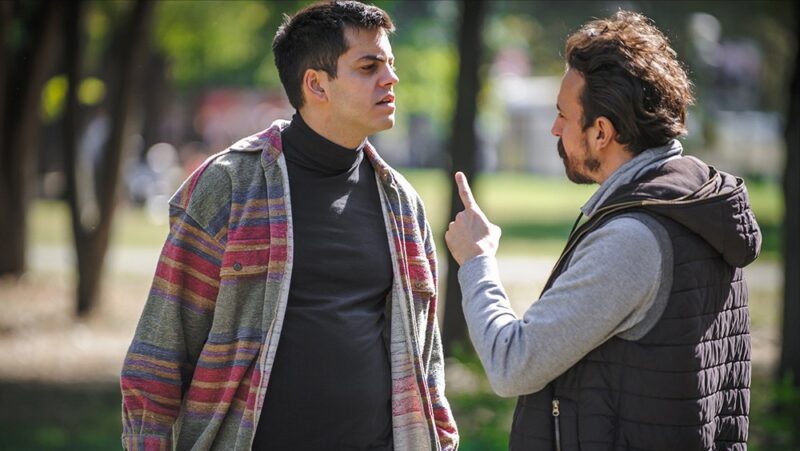Perspective: Students, Parents and Free Speech Win in Cheerleading Case

The U.S. Supreme Court delivered a significant victory for student First Amendment rights in its first-ever social media case at the K-12 level. The decision also protected parental rights and reaffirmed the core principles of a seminal student speech decision of more than 50 years ago.
The case involved the suspension of Brandi Levy when she was a freshman at Mahanoy Area High School in Mahanoy City, Pa. Upset in part at not making the varsity cheerleading squad, Levy posted a Snapchat on a Saturday afternoon from outside the Cocoa Hut convenience store that read “F— school f— softball f— cheer f— everything.”
School officials suspended Levy for a year even after she apologized for the profanity. She and her parents sued, alleging a violation of her First Amendment free-speech rights. Both a federal district court and a federal appeals court ruled in her favor. The school district, however, appealed to the U.S. Supreme Court for much-needed guidance in an unsettled area of student-speech law.
On June 23, 2021, the court ruled in favor of Levy, known in court filings by her initials “B.L.” The court ruled 8-1 that public school officials lacked the authority to discipline Levy for her off-campus social media post.
“The school went too far, and I’m glad that the Supreme Court agrees. …Young people need to have the ability to express themselves without worrying about being punished when they get to school. I never could have imagined that one single Snap would turn into a Supreme Court case, but I’m proud that my family and I advocated for the rights of millions of students.” — Brandi Levy, former high school cheerleader
Student Rights
First and foremost, the opinion provides a great deal of protection to student speech that takes place off campus. In his majority opinion, Justice Stephen Breyer emphasized that school officials normally have far less justification to regulate students’ off-campus, online speech than they do speech that takes place on campus. He identified three key features of off-campus speech that compel such a finding:
- Schools generally do not act “in loco parentis,” or in place of parents, when regulating off-campus speech. It is parents’ responsibility to discipline kids for off-campus expression, not school officials.
- Regulation of off-campus speech would require schools to monitor expressions made at any point, 24 hours a day, and this could result in the censorship of much religious and political expression. The court explained that school officials would have a “heavy burden” to censor such speech.
- The school has a strong interest in protecting off-campus speech that is unpopular, because as Breyer wrote memorably, “America’s public schools are the nurseries of democracy.”
Parental Rights
The Supreme Court’s decision also protected parental rights, as the court emphasized that parents generally do not give up their rights to discipline their children when it comes to off-campus speech. Parents have a fundamental due process right to rear their children as they see fit. The court recognized this, writing that “there is no reason to believe B.L.’s parents had delegated to school officials their own control of B.L.’s behavior at the Cocoa Hut.”
Justice Samuel Alito, in his concurring opinion, stressed parental rights. “In our society, parents, not the State, have the primary authority and duty to raise, educate, and form the character of their children,” he wrote. “Parents do not implicitly relinquish all that authority when they send their children to a public school.”
Core Principles of Tinker
The court also emphasized and reaffirmed the core protections identified more than 50 years ago in its landmark decision in Tinker v. Des Moines Independent Community School District:
- First, the court reiterated Justice Abe Fortas’ proclamation in Tinker that students do not “shed their constitutional rights to freedom of speech or expression at the schoolhouse gate.”
- Second, the court agreed that school officials can discipline such speech only if they can show that the student speech likely will cause a substantial disruption of school activities or invade the rights of others.
- Third, the court emphasized that school officials must point to actual facts of disruption rather than rely on “undifferentiated fear or apprehension of disturbance.”
This case leaves some unanswered questions. Future litigation likely will arise to fill in the gaps of the “features” identified by Justice Breyer, who acknowledged that schools still have interests in some types of student social media speech off-campus, like cyberbullying and harassment. But, in the meantime, the landmark student speech victory in the Brandi Levy case gives students, parents and educators a path to embracing student expression.
David L. Hudson Jr. is a First Amendment fellow for the Freedom Forum and law professor at Belmont University who publishes widely on First Amendment topics. He is the author of several First Amendment books, including “Let The Students Speak!: A History of the Fight for Freedom of Expression in American Schools” (2011), “The First Amendment: Freedom of Speech” (Thomson Reuters, 2012) and a 12-lecture audio course, “Freedom of Speech: Understanding the First Amendment” (Now You Know Media, 2018).
What Are Fighting Words? Definition, Examples and More
What Speech Is Protected by the First Amendment?
Related Content
2025 Al Neuharth Free Spirit and Journalism Conference
All-Expenses-Paid Trip To Washington, D.C.
June 22-27, 2025
Skill-Building
Network Growing
Head Start On Your Future

